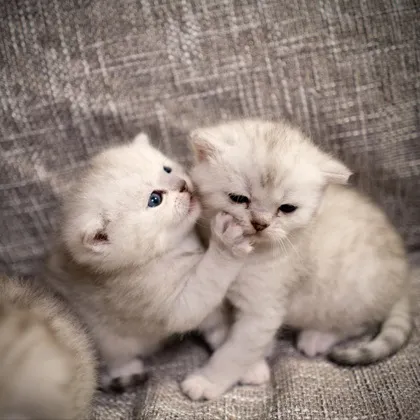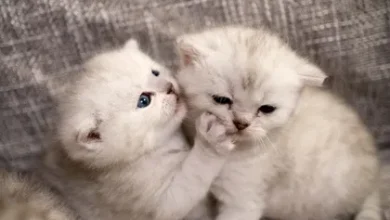The Disturbing Trend: Why Wealthy Europeans Are Buying Lion Cubs

The Alarming Rise of Exotic Pet Ownership Among Europe’s Elite
In a series of disturbing incidents across Europe, authorities have been discovering an unexpected resident in urban apartments: lion cubs. From Paris to the Dutch countryside, these majestic creatures are increasingly appearing where they clearly don’t belong – confined in spaces utterly unsuitable for their needs.
Recent cases include a 30-year-old Parisian man found hiding in a neighbor’s cupboard while a lion cub sat on a nearby bed. In another Paris apartment last year, police made a similar discovery. Earlier this year, a jogger in the Netherlands found a cub abandoned in a cage in a field. These aren’t isolated incidents but part of a troubling pattern among wealthy individuals seeking unusual status symbols.
The Source of These Royal Beasts
According to wildlife trafficking experts, these cubs likely aren’t captured from the wild but bred in captivity within Europe itself. Lois Lelanchon, an illegal wildlife trade expert at the International Fund for Animal Welfare, explains: “They’re probably born from lions kept in captivity across Europe – coming from private owners, irresponsible breeders, unlicensed zoos, or unscrupulous circuses.”
While smuggling cubs from Africa or Asia remains possible, increased airport security and trained customs officials have made this risky endeavor. Richard Thomas of TRAFFIC, the wildlife trade monitoring network, confirms that recent discoveries are “almost certainly captive-bred,” though foreign smuggling cannot be entirely ruled out.
The Psychology Behind the Purchase
So who buys these magnificent creatures? Those with substantial disposable income, according to reports. The Paris suspect was allegedly trying to sell his cub on social media for €10,000. But the motivation goes beyond financial transaction.
Thomas suggests: “Some people likely believe owning such an animal gives them an unparalleled sense of power. These owners are either wealthy and powerful individuals who consider themselves above the law, or major figures within underground criminal networks.” This connection to organized crime isn’t merely speculative – Italian police once confiscated a crocodile believed to belong to a suspected mafia boss.
The appeal may be fueled by media portrayals that romanticize exotic pet ownership. However, Lelanchon notes that pure ignorance also plays a significant role: “People think lion cubs are beautiful, exotic, cool, and different. They don’t consider conservation issues or the safety concerns of keeping a lion.”
The Harsh Reality of Lion Ownership
Unlike dogs, which have undergone centuries of domestication, lions remain wild animals regardless of how young they’re acquired. Their innate instincts cannot be bred out or fully suppressed through human interaction. As they mature, their behavior becomes increasingly unpredictable and dangerous.
Lelanchon emphasizes another critical factor: “Most private owners cannot properly provide for these animals’ complex needs. Lions don’t eat dog food, and they require vast territories to roam. Most end up in terrible conditions.”
When cubs grow into unmanageable adults, owners often abandon them. Some might surrender animals to authorities, but this remains relatively uncommon as it almost certainly leads to criminal prosecution.
What Happens to Rescued Cubs?
When authorities discover these animals, their immediate priority is assessing the cub’s condition. If confiscated, experienced professionals examine them for signs of abuse or neglect. If healthy, the challenging process begins of finding appropriate placement – often wildlife centers, zoos, or sanctuaries capable of meeting their specialized needs.
The emaciated cub found in a vacant Paris apartment last year was eventually transported to a conservation center in South Africa run by wildlife officials – a rare happy ending for these displaced creatures.
This trend reflects a deeper issue about humanity’s relationship with nature and the dangerous desire to possess rather than protect magnificent wildlife. True power isn’t demonstrated by confining majestic creatures but by respecting their right to roam free in their natural habitats.





